Halogenation|nitration|vanderwall forces|atternation effect|ease of halogenation| relative rates of abstraction|monochloronitated product
Step by step video solution for Halogenation|nitration|vanderwall forces|atternation effect|ease of halogenation| relative rates of abstraction|monochloronitated product by Chemistry experts to help you in doubts & scoring excellent marks in Class 12 exams.
Updated on:21/07/2023Similar Questions
Knowledge Check
In halogenation process rate of reaction of alkanes with halogens is
AF2>Cl2>Br2>I2BI2>Br2>Cl2>F2CI2>F2>Cl2>Br2DF2>Cl2>I2>Br2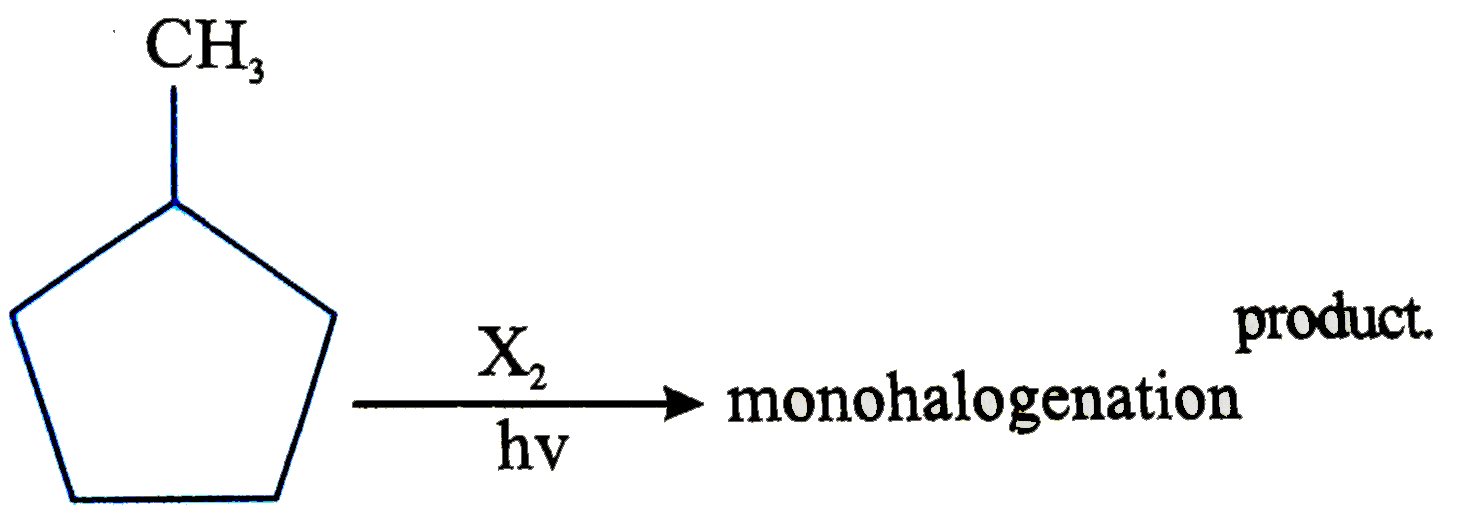 monohalogenation
monohalogenation
Q. Which halogen will give the best yield of the monohalogenation product?AF2BCl2CBr2DI2On halogenation, an alkane gives only one monohalogenated product. The alkane may be:
A2-methyl butaneB2,2-dimethyl propaneCcyclopentaneDboth (B) and (C)
Halogenation is a substitution reaction, where halogen replaces one or more hydrogens of hydrocarbon
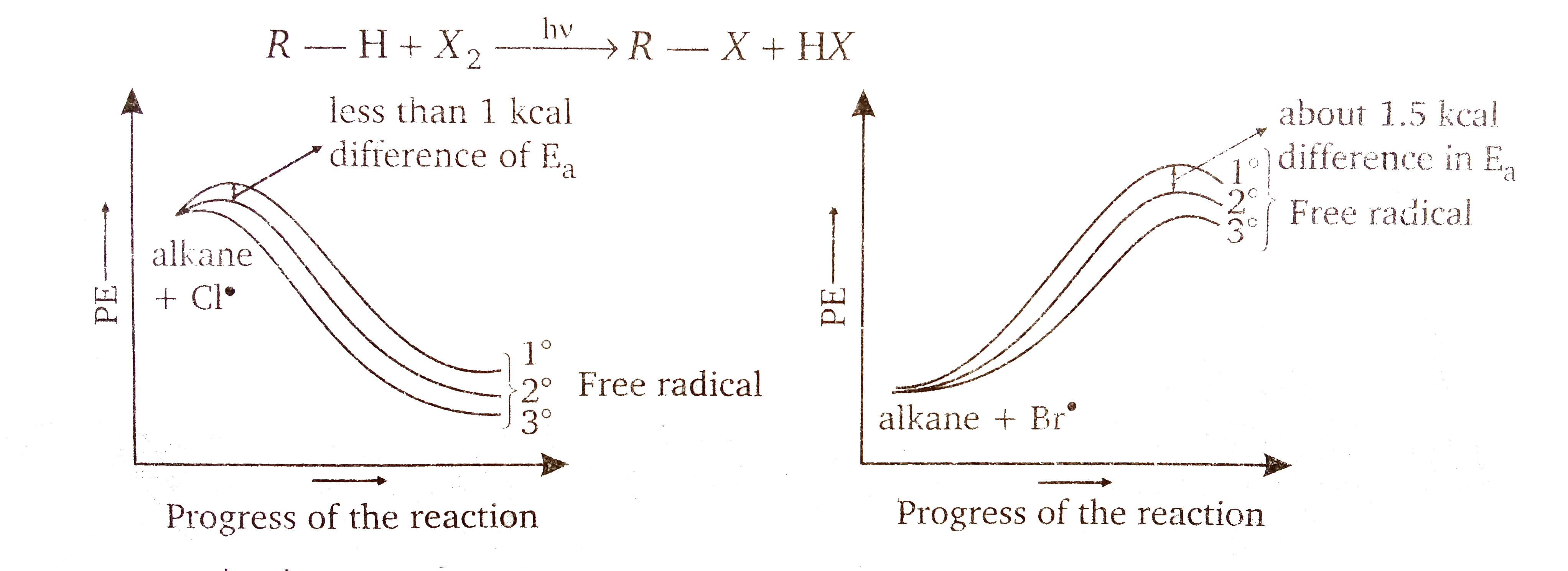
Chlorine free radical make 1∘,2∘,3∘ radicals with almost equal ease, whereas bromine free radicals have a clear preference for the formation of tertiary free radicals. So, bromine is less reactive, and more selectrive whereas chlorine is less selective and more reactive.
The relative rate of abstraction of hydrogen by Br∗ is
3∘1600>2∘82>1∘1
3∘5>2∘3.8>1∘1
1-halo-2,3-dimethyl butane will be obtained in better yields, if halogen is:
View SolutionHalogenation is a substitution reaction, where halogen replaces one or more hydrogens of hydrocarbon
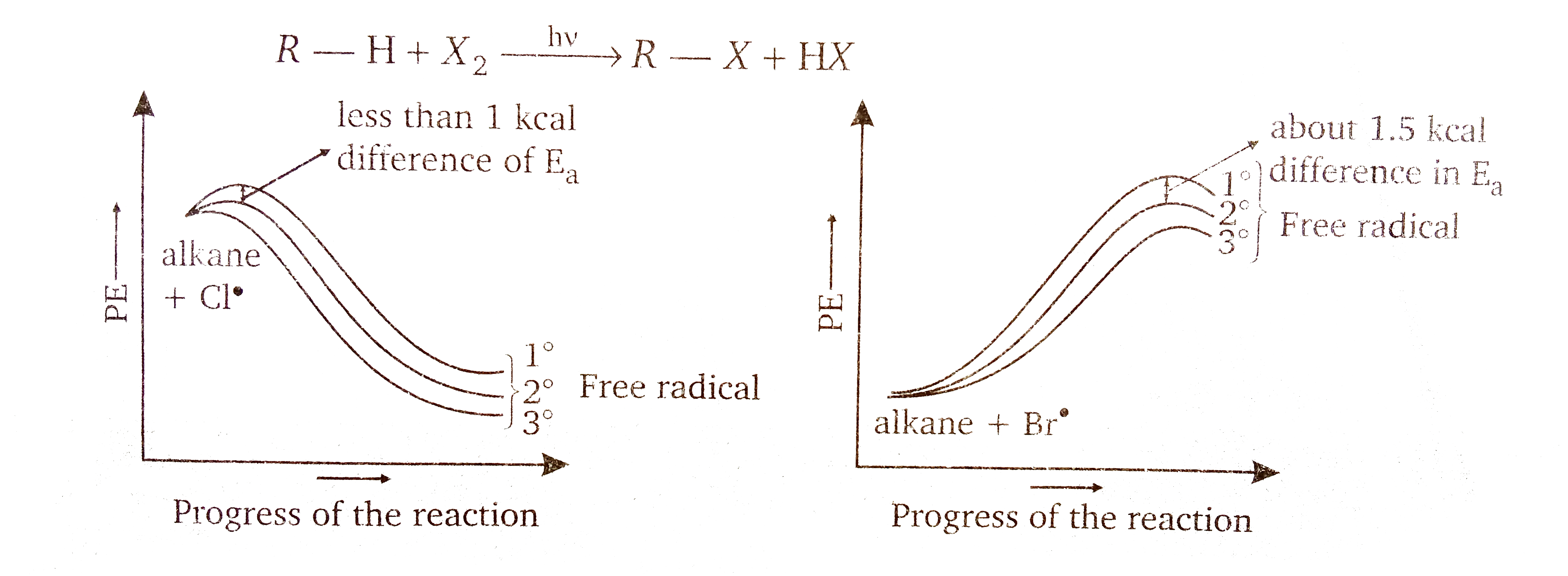
Chlorine free radical make 1∘,2∘,3∘ radicals with almost equal ease, whereas bromine free radicals have a clear preference for the formation of tertiary free radicals. So, bromine is less reactive, and more selectrive whereas chlorine is less selective and more reactive.
The relative rate of abstraction of hydrogen by Br∗ is
3∘1600>2∘82>1∘1
3∘5>2∘3.8>1∘1

What is the value of x (% yield of product)?
View SolutionHalogenation is a substitution reaction, where halogen replaces one or more hydrogens of hydrocarbon
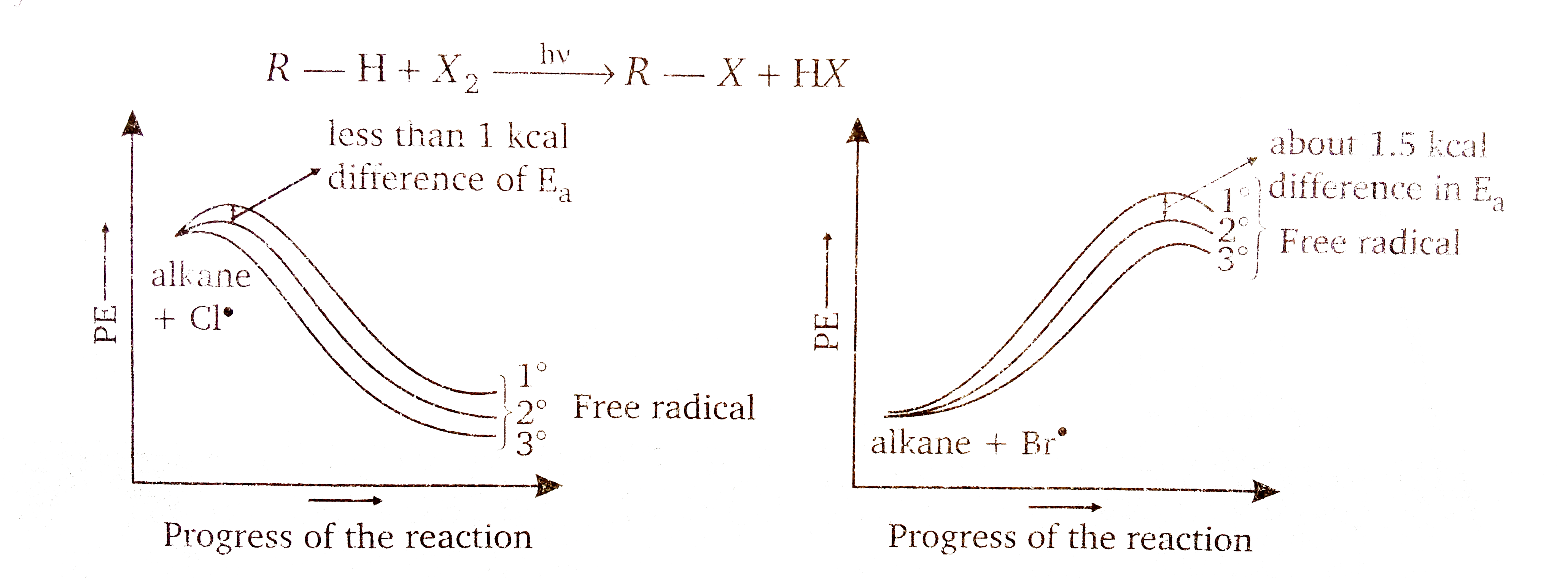
Chlorine free radical make 1∘,2∘,3∘ radicals with almost equal ease, whereas bromine free radicals have a clear preference for the formation of tertiary free radicals. So, bromine is less reactive, and more selectrive whereas chlorine is less selective and more reactive.
The relative rate of abstraction of hydrogen by Br∗ is
3∘1600>2∘82>1∘1
3∘5>2∘3.8>1∘1
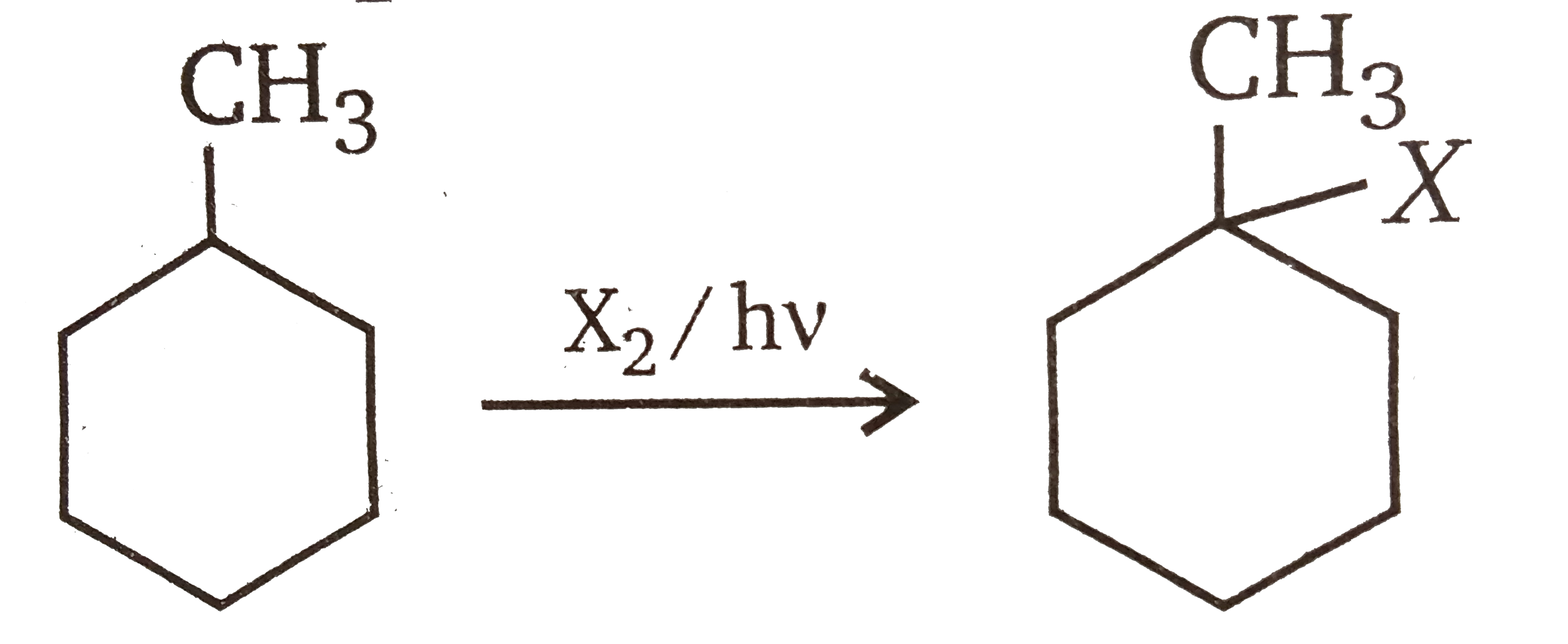
Above product will obtained in better yield if X is
View SolutionWhich of the following compound
on halogenation give a racemic mixture of products?
View SolutionHalogenation is a substitution reaction, where halogen replaces one or more hydrogens of hydrocarbon
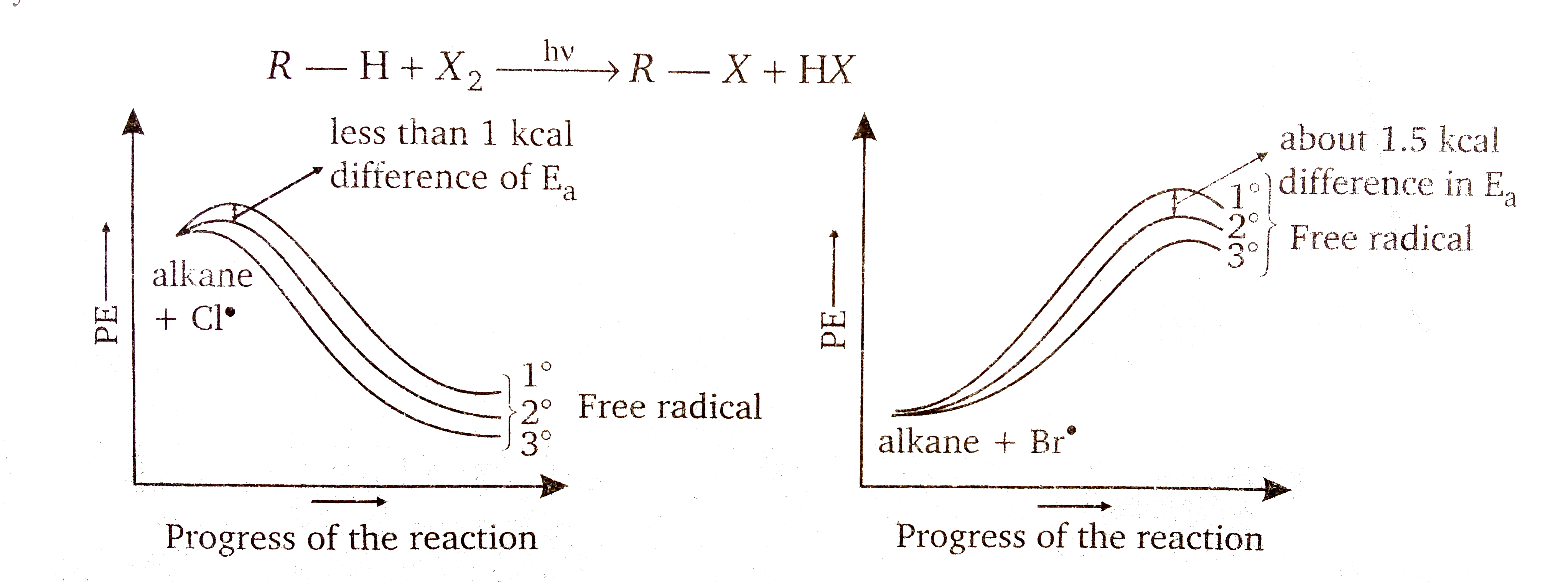
Chlorine free radical make 1∘,2∘,3∘ radicals with almost equal ease, whereas bromine free radicals have a clear preference for the formation of tertiary free radicals. So, bromine is less reactive, and more selectrive whereas chlorine is less selective and more reactive.
The relative rate of abstraction of hydrogen by Br∗ is
3∘1600>2∘82>1∘1
3∘5>2∘3.8>1∘1
CH3−CH3∣CH−CH3Cl2/hv−−−→ product
Major product in the above reactio is:
View Solution
